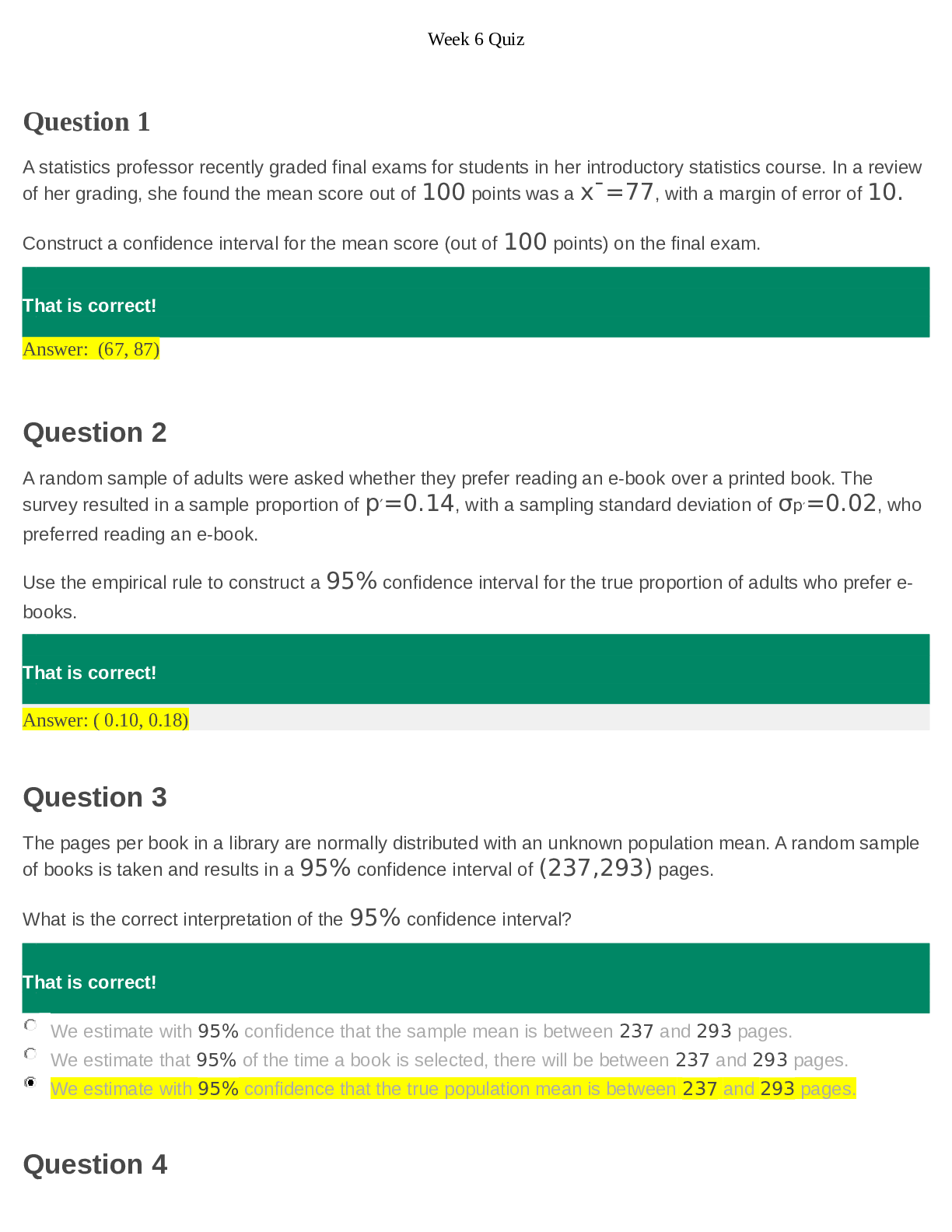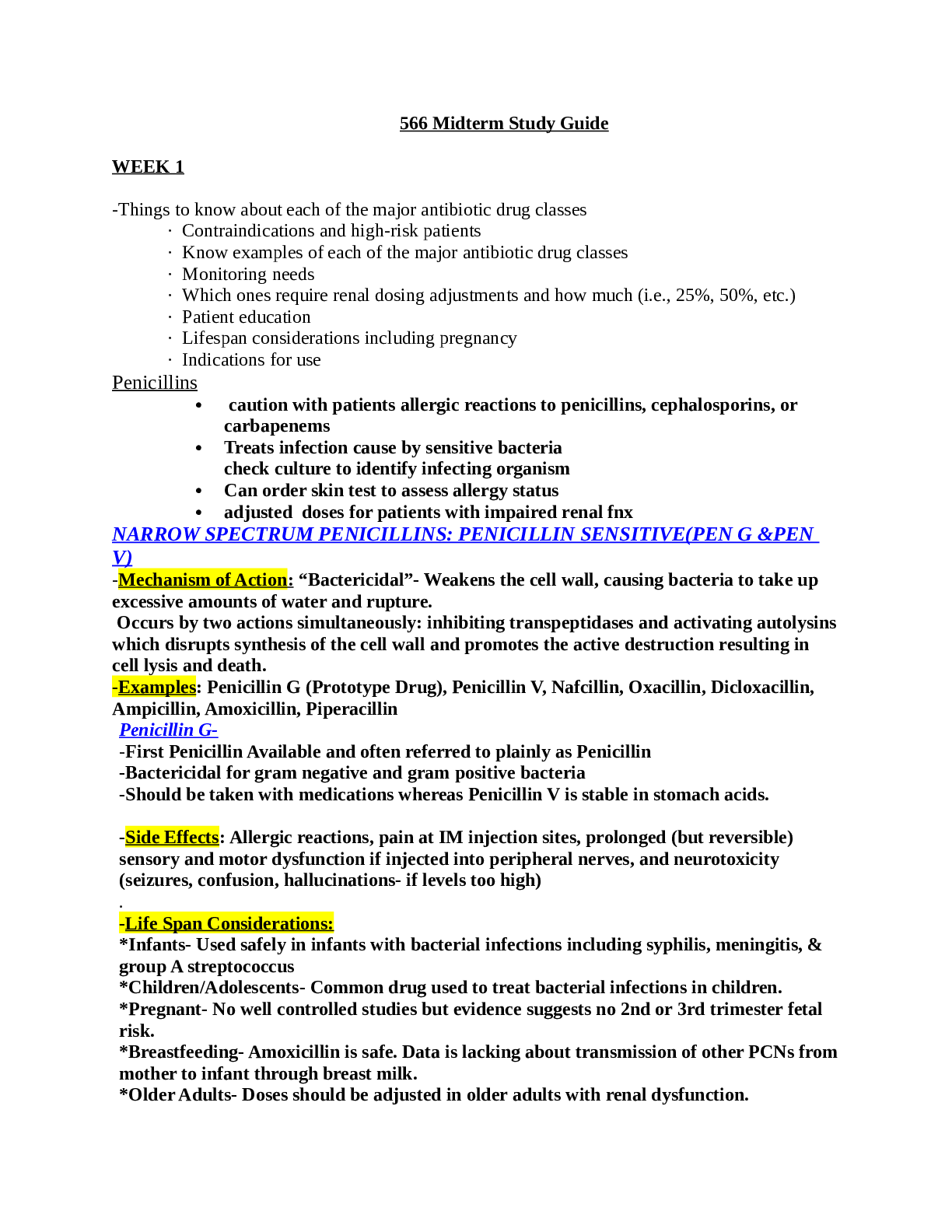EC 111 First Exam Version 3_WA_Gray
Document Content and Description Below
1. The primary determinant of a country's standard of living is a. the country’s ability to prevail over foreign competition. b. the country’s ability to produce goods and services. c. the tota... l supply of money in the economy. d. the average age of the country's labor force. 2. The following table contains some production possibilities for an economy for a given year: Cars Newspapers 10 400 12 360 14 ? If the production possibilities frontier is bowed outward, then "?" could be a. 340. b. 330. c. 320. d. 310. Figure 2-11 consumer goods 3. Refer to Figure 2-11. The shift of the production possibilities frontier from A to B can best be described as a. a downturn in the economy. b. economic growth. c. an enhancement of equality. d. an improvement in the allocation of resources. 4. Any point on a country's production possibilities frontier represents a combination of two goods that an economy a. will never be able to produce. b. can produce using all available resources and technology. c. can produce using some portion, but not all, of its resources and technology. d. may be able to produce in the future with more resources and/or superior technology. 5. Which of these terms are used interchangeably? a. "goods and services" and "inputs" b. "goods and services" and "factors of production" c. "inputs" and "factors of production" d. "land, labor, and capital" and "goods and services" 6. Which of the following is not a reason people choose to depend on others for goods and services? a. to improve their lives b. to allow them to enjoy a greater variety of goods and services c. to consume more of each good without working any more hours d. to allow people to produce outside their production possibilities frontiers 7. Rational people make decisions at the margin by a. following marginal traditions. b. behaving in a random fashion. c. thinking in black-and-white terms. d. comparing marginal costs and marginal benefits. 8. Economists use the word equality to describe a situation in which a. each member of society has the same income. b. each member of society has access to abundant quantities of goods and services, regardless of his or her income. c. society is getting the maximum benefits from its scarce resources. d. society's resources are used efficiently. 9. When government policies are enacted, a. equality can usually be enhanced without an efficiency loss, but efficiency can never be enhanced without a reduction in equality. b. efficiency can usually be enhanced without a reduction in equality, but equality can never be enhanced without an efficiency loss. c. it is always the case that either efficiency and equality are both enhanced, or efficiency and equality are both diminished. ................................................................CONTINUED........................................................ [Show More]
Last updated: 2 years ago
Preview 1 out of 10 pages

Buy this document to get the full access instantly
Instant Download Access after purchase
Buy NowInstant download
We Accept:

Reviews( 0 )
$14.00
Can't find what you want? Try our AI powered Search
Document information
Connected school, study & course
About the document
Uploaded On
Jun 22, 2021
Number of pages
10
Written in
Additional information
This document has been written for:
Uploaded
Jun 22, 2021
Downloads
0
Views
54













